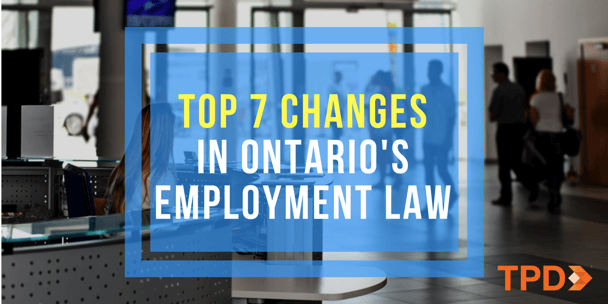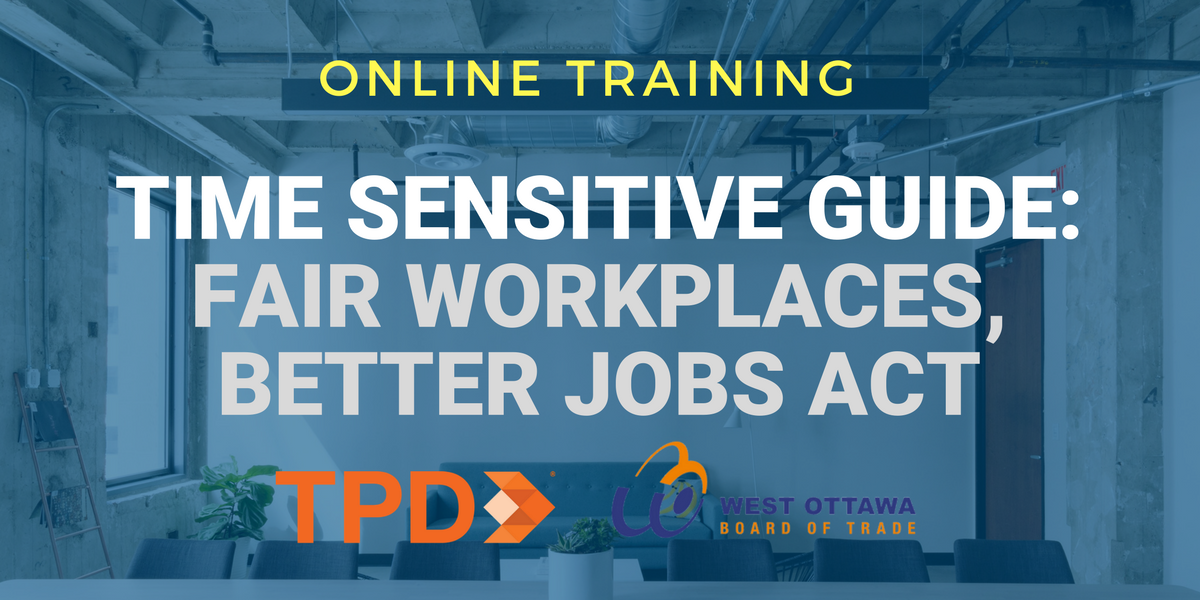
Ontario, Canada's second largest provence, is on the rise to hold employers accountable to build fair workplace environment and provide better jobs through Bill 148, Fair Workplaces, Better Jobs Act, 2017. Here are the 7 most significant highlights for employers.
1. Significant Minimum Wage Increase
The Ontario Government has proposed a new general minimum wage of CAD $15 to take effect on January 1, 2019.
2. Employee Misclassification
Recently there has been a trend where companies have designed their service-based business around employees who want to pick-up on an as needed basis, creating an increase in contractors. There are employees being misclassified as self-employed individuals who are not entitled to protections under the Employment Standards Act 2000.
The Ontario Government has preventing misclassification from happening in the future and will require that employers are to provide employment status to standardize employment entitlements. This change will come into effect immediately when the Bill receives royal assent.
3. Boosted Enforcement of Employment Standards and Compliance Assistance
Increased will be added to aid in employment standards enforcement, including hiring up to 175 more standards officers by 2020 thru 2021. All claims will be resolved within 90 days of filing and inspecting 1 of 10 Ontario workplaces.
The Government will also launch an education program for small and medium-sized business to assist employers with compliance, including new employers.

4. Increase in Annual Leave
As proposed by the Bill and effective January 1, 2018, employees with over 5 years of service will have an increase in paid annual leave for a new minimum of 3 weeks.
Currently, Ontario employees are entitled to a minimum of 2 weeks’ paid annual leave after 1 year of service. The minimum entitlements do not include paid public holidays.
5. Pay Equity for Casual, Part-Time, Temporary, and Seasonal Employees
Equal pay will be required for casual, part-time, temporary, and seasonal employees in the same roles as full-time and permanent employees.
Ontario’s current equal pay protection is not based on categories of employment, except to prohibit discrimination on protected grounds.
This will take effect on April 1, 2018.

6. Employee Schedules
Through the Bill, employees will have more rights when it comes to scheduling. Ex: if asked to work less than 4 days notice, an employee can refuse shifts without detriment.
Employees will be entitled to 3 hours of pay when:
- their shift is canceled within 48 hours of the scheduled start time
- they start their shift but work less than 3 hours
- employees are on call for work, but not called in for work, or are called in to work less than 3 hours
7. Emergency Paid Leave
Beginning January 1, 2018, employers will be required to provide employees with 10 days of personal emergency leave, with 2 of those being paid. Personal emergency leave can be used for an illness, injury or family illness or emergency.
Currently, organizations with 50+ employees are required to provide personal emergency leave, but not paid leave.
The amended rules state that employers are not allowed to request a doctor’s note to support evidence of emergency leave.
The first reading of the Bill has been passed and is being considered by a legislative standing committee. With all the new standardization for employers and employees, we recommend that you make it crystal clear in your policy manual. Take a look at our free guide here to make the first steps in staying compliant with the new regulations.
Filed under Expert Series

.png?width=2400&name=HQ%20TPD%20careers%20hero%20(1).png)




